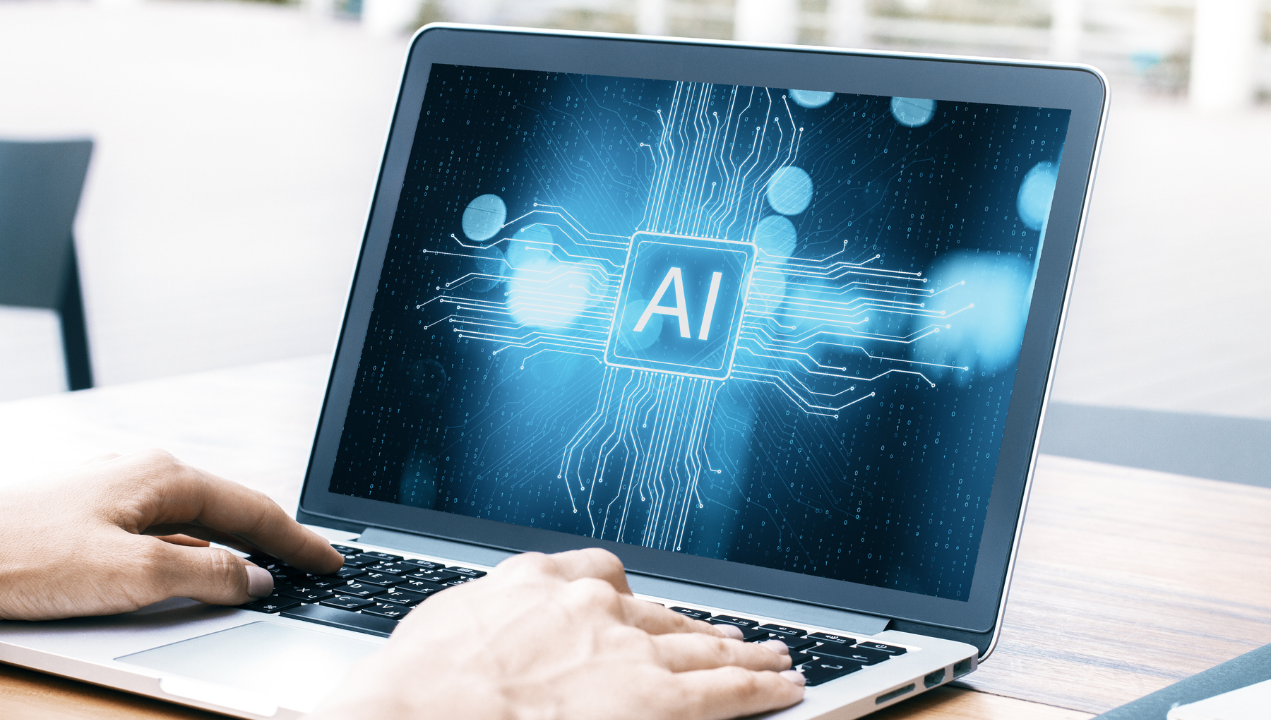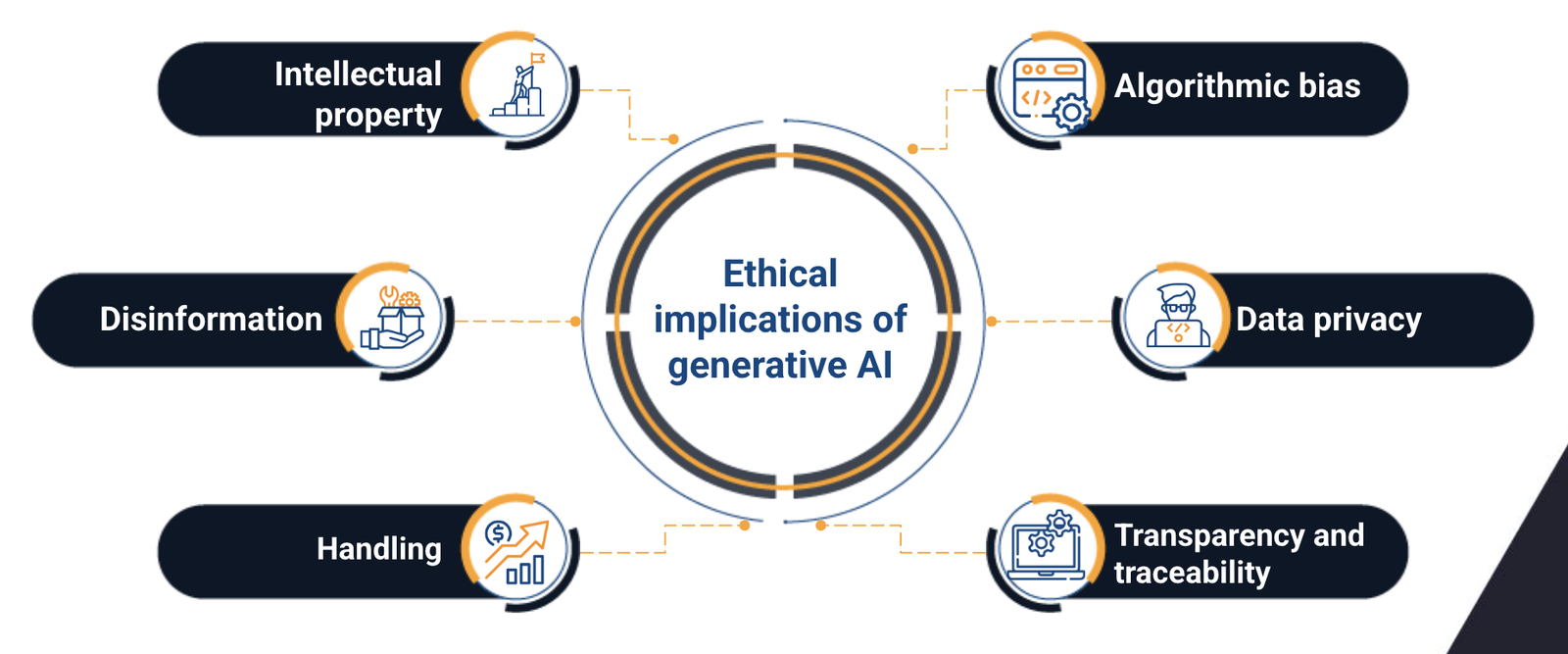
Generative AI vs AI: Similarities, differences, and ethical implications
Table of contents
Quick Access

Artificial intelligence (AI) has ceased to be a future promise and has become a key strategic tool in modern companies. From process automation to content generation and customer support, its applications are increasingly broad.
However, with the rapid evolution of the field, many business leaders are facing a new dilemma: what is the difference between traditional AI and generative AI? What role does machine learning play? What ethical implications does its adoption entail?
In an environment where technological decisions directly impact business competitiveness and reputation, understanding the differences between AI vs generative AI, or between an AI agent vs generative AI, is critical to choosing the right solution.
This guide is designed to provide a clear and practical overview of these technologies, their similarities, their ethical risks, and their benefits, with the goal of helping you make informed decisions for your organization.

What is traditional AI?
Artificial intelligence (AI) is a broad field of computer science that seeks to replicate the human ability to learn, reason, make decisions, and solve problems.
An AI agent is any system that perceives its environment and acts autonomously to achieve a goal. This can include everything from virtual assistants and recommendation engines to algorithms that detect financial fraud.
Key features of traditional AI:
- Based on programmed rules or supervised machine learning.
- Requires large amounts of labeled data for training.
- Typically specialized for a specific task.
- Delivers predictable and controlled results.
What is generative AI?
Generative AI is a branch of artificial intelligence that uses unsupervised deep learning models to create new content: images, text, audio, code, and even videos.
Unlike a traditional AI agent that answers or classifies, a generative system can produce creative results that didn't exist in the original data.
Characteristics of Generative AI:
- It uses models such as generative adversarial networks (GANs) or transformers (like GPT).
- It generates new and original results rather than just predicting.
- It works well with unstructured data.
- It can adapt to multiple tasks with a single pre-trained model.

AI vs Generative AI: What are the differences?
- Functional Purpose
- Traditional AI: Makes decisions, predicts behaviors, automates workflows.
- Generative AI: Creates content from scratch and simulates human creativity.
- Data and Training
- Traditional AI: Requires structured data and specific tasks.
- Generative AI: Learns from large volumes of unstructured data.
- Final Result
- Traditional AI: Returns a specific classification, recommendation, or action.
- Generative AI: Returns new content (text, images, etc.), not necessarily limited to a fixed set of responses.
- Applications
- Traditional AI: Fraud detection, chatbots, predictive maintenance.
- Generative AI: Article writing, realistic image generation, creative product customization.
Generative AI vs. Machine Learning
Although they are often used interchangeably, there is a key difference between generative AI and machine learning.
Machine learning is a technique within AI that allows algorithms to automatically improve based on experience. It is the basis of many AI systems, including generative ones.
Generative AI, on the other hand, is an advanced application of machine learning that uses generative models, such as transformers, to produce original content.
Relationship between the two:
- Machine learning is the foundation of generative AI.
- Generative AI requires more complex models, such as deep neural networks, and more intensive training.
- Machine learning can be supervised, unsupervised, or reinforcement learning. Generative AI generally relies on unsupervised or self-supervised approaches.

AI Agent vs. Generative AI: Which Should You Implement?
For business leaders, it's important to understand which type of solution best suits their goals. Here are some key points:
Choose a traditional AI agent if:
- You need to automate repetitive processes.
- You require reliable and predictable decisions.
- You are looking to improve analysis of structured data (sales, inventory, operational metrics).
Choose generative AI if:
- You want to generate content for marketing, design, or customer service.
- You need large-scale personalization.
- You are looking for disruptive innovation in digital products or experiences.
Often, both technologies can coexist in a single solution. For example, a chatbot can use a traditional AI model to recognize user intent and generative AI to generate more natural and human-like responses.
Ethical Implications of Generative AI
Generative AI opens up new opportunities, but also brings significant ethical challenges for companies that choose to adopt it.
- Intellectual Property: Who owns an AI-generated image or text? Can an AI infringe copyright if it was trained on protected content?
- Disinformation and Manipulation: The ease with which fake text or images can amplify disinformation, especially on social media or in political campaigns.
- Algorithmic Bias: Generative models can reproduce biases present in training data, generating discriminatory or unethical results.
- Data Privacy: Models can memorize fragments of private information from the data used in their training, posing risks of data leakage.
- Transparency and Traceability: Unlike traditional models, generative systems are difficult to interpret. Companies should look for auditing and explainability mechanisms.

Best Practices for Ethical Implementation
- Evaluate vendors that prioritize responsible AI.
- Use curated datasets and consistently monitor results.
- Include interdisciplinary teams (technical, legal, ethics) in development.
- Train employees on the uses and limitations of these technologies.
- Adopprovide tools for traceability, explainability, and human control.
The comparison between AI and generative AI should not be seen as a competition, but as an opportunity to understand the different capabilities of each technology. An AI agent can help you automate operational processes, while generative AI can be the creative engine of the next wave of business innovation.
The real value lies in identifying the specific business problem and selecting the technology that best fits it. Understanding the differences between generative AI vs. machine learning, or between AI agent vs. generative AI, enables business leaders to make more informed and strategic decisions.
Rootstack's expertise in AI solutions
At Rootstack, we have a team specialized in artificial intelligence and generative AI solutions for companies looking to innovate and automate key processes.
We have implemented customized projects that combine machine learning, generative models, and conversational agents for different industries, from education to e-commerce.
Our experience allows us to help you explore, design, and implement an ethical and efficient AI strategy aligned with your business objectives. Contact us.
We recommend you this video
Related blogs

AI applied to the optimization of operational processes in banking

MCP: Key to orchestrating AI agents in complex business processes

How AI is transforming business automation

How to plan your AI automation project with MCP

Banking software development company | Rootstack
